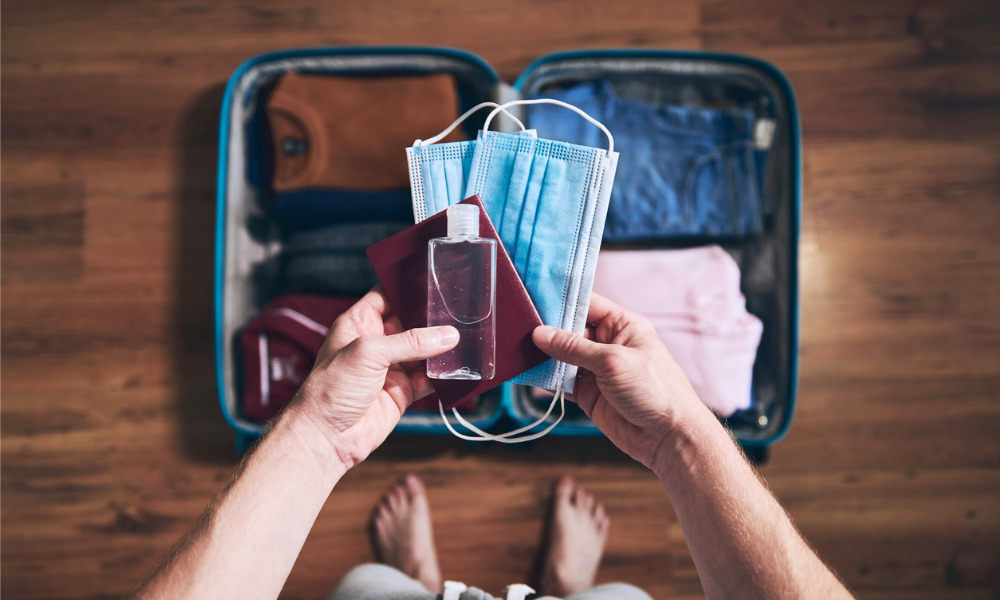
Aviation industry still holding out hope for quarantine-free travel

New Zealand’s Prime Minister Jacinda Ardern said there is still work to be done before she will confirm the opening of a Trans-Tasman travel bubble.
Rumours had been circulating that travel could begin as early as next month but Ardern said the cabinet would not be rushed into setting a date. She said the government’s plan to open to Australia as a whole had changed, and now arrangements would be made on a state-by-state basis.
Stakeholders from the New Zealand and Australian governments had come together on 12 occasions to work through the complexities but there are still outstanding issues to determine, the PM said today. She confirmed the commencement date would be announced on April 6.
Quarantine-free travel has been dubbed a golden ticket for New Zealand’s aviation and tourism industry for some time, with critics questioning why an agreement has taken so long. Australia’s border has remained open to NZ throughout the pandemic, excluding short closures during Auckland’s recent outbreak. But in seeking a hard-lined elimination strategy, NZ has been more cautious on reopening to neighbours across the ditch.
Read more: Air NZ brings back staff ahead of Trans-Tasman travel bubble
Speaking to HRD, John Nicholson, CEO at Aviation New Zealand, said the Trans-Tasman bubble represented a “critically important” opportunity for the country.
He said tourism aviation companies are operating at most at 30% of their pre-Covid levels and that the domestic market simply can't provide the level of business they need to survive. Pilot training is one example of where quarantine-free travel will provide a lifeline after an incredibly challenging 12 months.
“Between them, pilot training schools have almost 500 students committed to coming to New Zealand for training - a good number of whom are supported by airline to trainer arrangements and agreements. Currently, none of them can get into New Zealand,” he said.
“Tourism aviation companies and pilot training schools have cut costs as much as possible to remain in business. This has inevitably meant reducing staff numbers.
“A Trans-Tasman bubble would give them much needed confidence, allow them to retain current qualified staff, most of whom are New Zealanders who have trained and qualified here, and, especially in the tourism area, allow them to re-employ staff made redundant over the last year.”
In 2020, tuition fees from international students brought in $51m and had an economic impact of $226m, mostly in regional areas. The industry employed 380 New Zealanders who had all trained in NZ and were paid well above the minimum wage.
Nicholson said this “high value” section of the aviation industry had been crippled by border closures.
“International students historically account for almost 70% of those going through New Zealand training schools. Without them, the viability of the whole industry is questionable,” he said.
Read more: Air NZ employees among first round of Kiwis for COVID-19 vaccine
Speaking to the media today, Ardern said a number of criteria still need to be met before the bubble can open. Processes for dealing with an outbreak on either side of the Tasman still need to be fleshed out, as well as technical issues around the contract tracing procedure. The government is also awaiting an up-to-date assessment on the health risk from Health Director General Dr Ashley Bloomfield.
The decision to resume travel state-by-state, rather than country wide, appears to be a response to Australia’s piecemeal strategy on COVID-19 regulations. The response to a cluster outbreak has varied widely between states, with Premiers willing to close borders over a single case, and it has had a significant impact on consumer confidence.
Air NZ previously announced it had begun recalling furloughed staff ahead of a travel bubble opening at the start of the year. However the Northern Beaches outbreak in Sydney, and subsequent hotel clusters in Melbourne put those plans on hold.